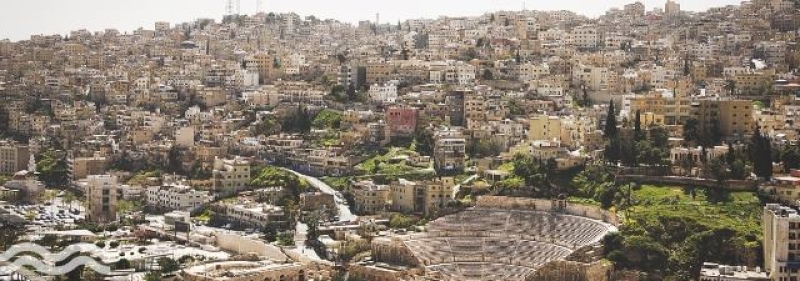- NCP Demands Impeachment, Arrest of President |
- PM Pledges to Modernise, Strengthen Border Force |
- Dhaka Tops Global Pollution List with Hazardous Air |
- Country Observes Martyred Army Day Today |
- 100 CSOs rally against Trump’s trade tactics, urge access to drugs |
Desalination pipeline to boost Jordan’s water security

Jordan cityscape - Aqua Tech News letter.
Jordan will source hundreds of millions of cubic metres of clean water a year from a multi-billion-dollar desalination plant described as one of the largest in the world.
Desalination for three million people
The Aqaba-Amman Water Desalination and Conveyance Project plant is valued at more than €4.87 billion and will provide more than 300 million cubic meters of potable water each year to the residents Amman and Aqaba, totalling more three million people.
According to a report by the state-run media agency, Petra, it will be the largest ever infrastructure project in the country, creating thousands of jobs.
A state-of-the-art desalination plant will take water from the Gulf of Aqaba on the Red Sea, desalinate it, before channelling fresh water to the country's capital, Amman, 450 kilometres to the north.
The whole system incorporates cutting-edge seawater intake, reverse osmosis membranes, high-capacity pumping stations and renewable energy infrastructure.
Jordan's water and irrigation minister, Raed Abu Al-Saud, described the project as 'transformative', stating that it would "mark a significant shift in Jordan's water security landscape."
Jordan and water scarcity
Ideas for tackling Jordan's water scarcity are not new, with plans for transporting water going back as far as 1979. More recently, in 2013, representatives from Israel, Jordan, and Palestine signed a memorandum of understanding to explore a project that would have seen a pipeline system connect the Dead Sea and the Red Sea. This would have included a desalination plant at the Red Sea.
However, the plans were abandoned, with Jordan's then water minister declaring the project, "a thing of the past."
International partners and collaboration
The project will be led by French infrastructure company Meridiam, with partners including SUEZ, Orascom Construction, and VINCI Construction Grands Projects. This consortium will manage the plant for 26 years before handing over to the Jordanian government.
Funding sources have included USAID, the European Investment Bank, the European Union, among others.
"Once this project is operational, there will be continuous water supply, 24/7, so people will no longer have to ration water," Souad Farsi, the European Investment Bank's representative to Jordan, told media. "This project is really transformational for people in Jordan."
Water as part of a wider national strategy
The project will rely partially on renewable energy for its power, in line with the objectives of the country's Economic Modernization Vision and plans to generate 31 per cent of electricity from renewable sources by 2030.
A spokesperson from Meridiam, told media: "This project will increase the total annual available domestic water supply by almost 60 percent for households." – Aqua Tech Newsletter

